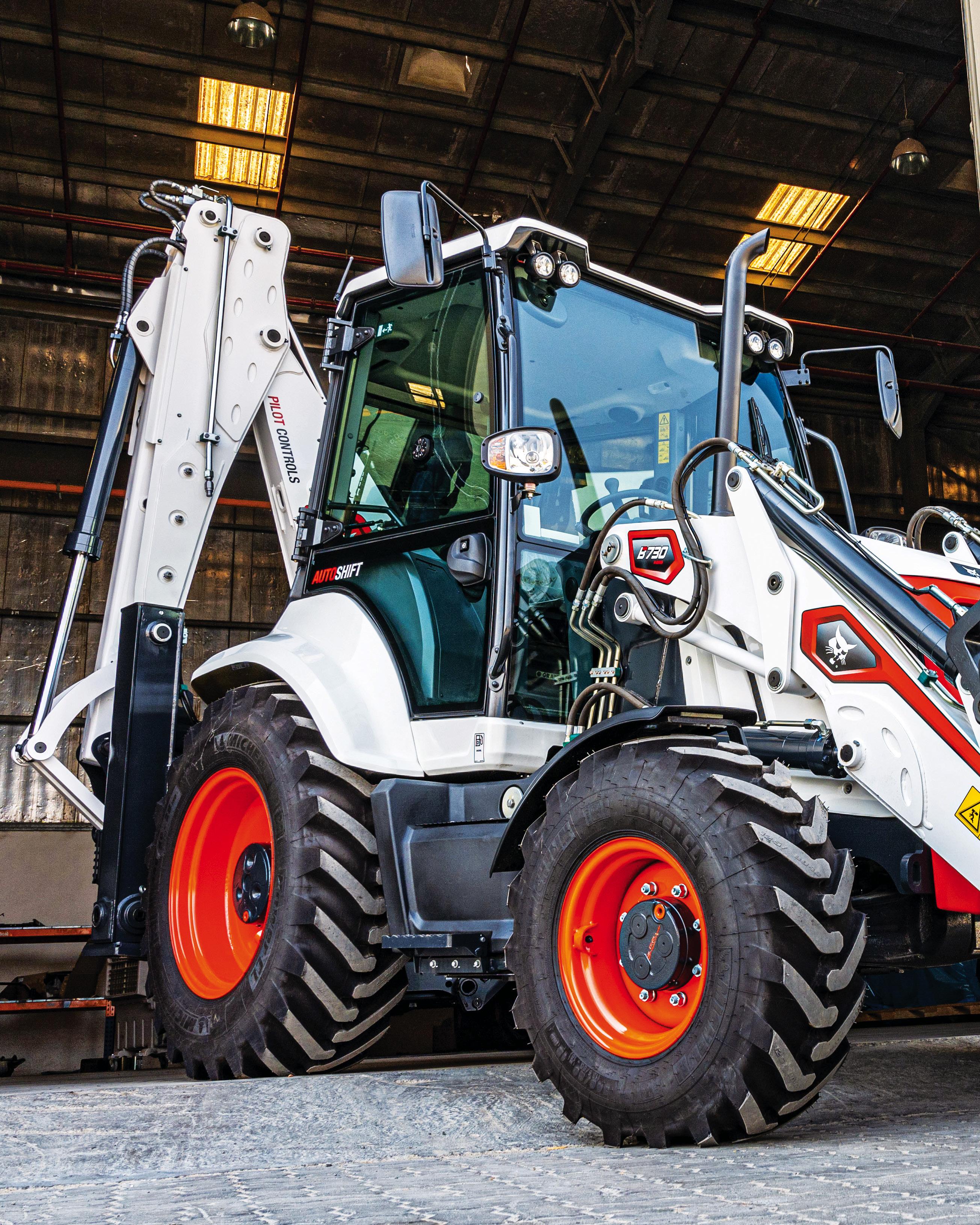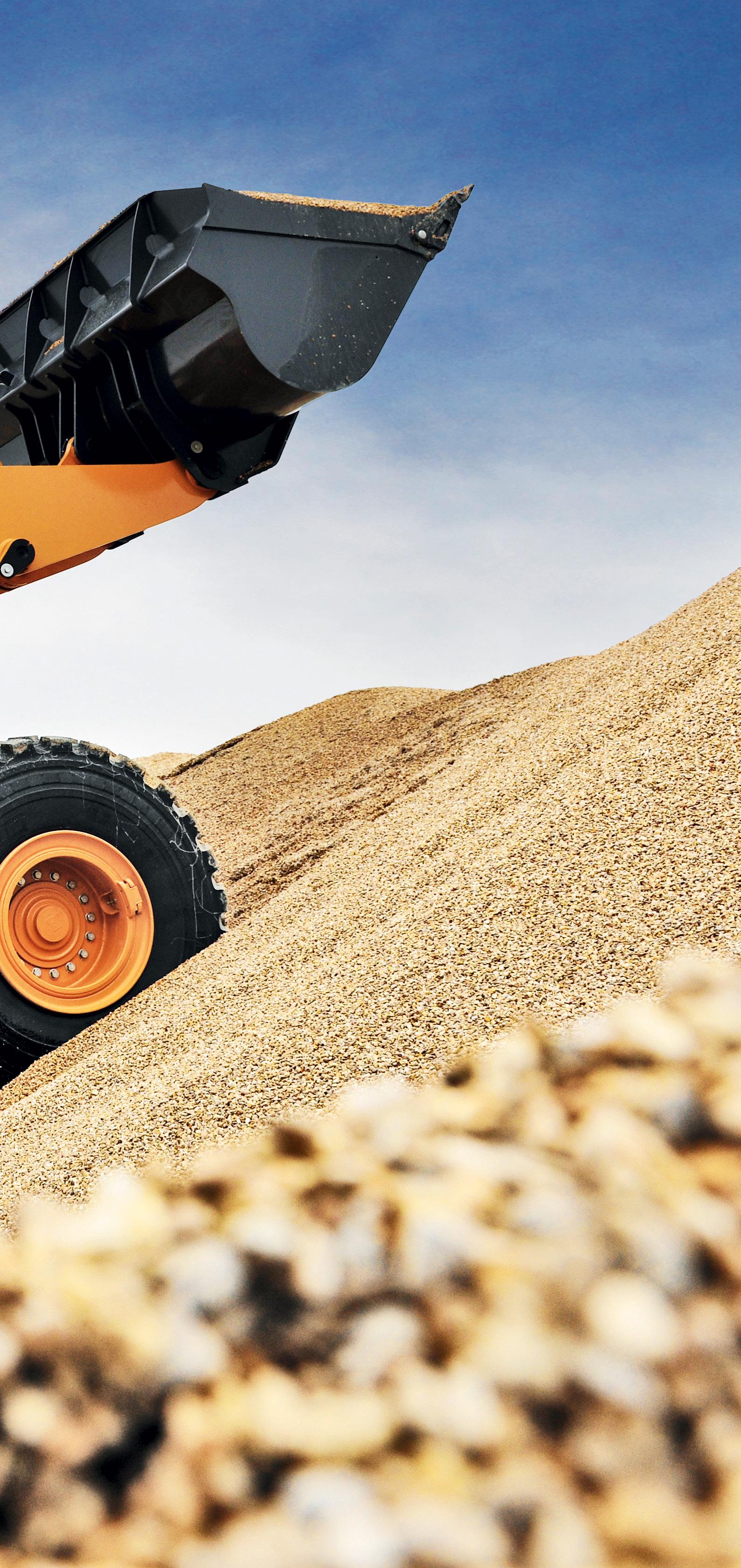
8 minute read
TAKING THE HELM
TAKING THE HELM
WITH DRAGAN KRZNARIC TAKING OVER AS THE COMMERCIAL DIRECTOR FOR CASE CONSTRUCTION MACHINERY IN THE MIDDLE EAST AND AFRICA REGION, CMME CATCHES UP WITH THE INDUSTRY VETERAN TO DISCUSS WHERE CASE STANDS TODAY AND HOW HE SEES THE FUTURE
Please give us an introduction about yourself and your experience in the industry and with Case. Also, as you take over charge of Case in the region, where does the company stand in the regional market and in what state of health is it?
I have been working in the construction equipment industry for the past 20 years. I started in Europe and initially worked with the Middle East and Africa region from there, eventually moving to the region 12 years ago to be closer to the markets and customers.
During my nine years with Case I’ve seen steady growth driven by flexibility to adapt products and support services to address changing customer needs and requirements. Since the heydays of the pre-2008 crisis, construction and related industries have constantly been under pressure to drive down costs. This has challenged machinery suppliers to support customers in their efforts to increase efficiency. Sourcing has gradually shifted from the West to the East, and Case has redesigned our offering to provide simple, robust and reliable machines, easy to operate and maintain.
What is the importance of the Middle East/GCC to Case? Also, we’ve heard Case uses this region extensively as a testing ground for global products. Please comment.
The Middle East in general, and the GCC in particular, have been important parts of Case’s global footprint for many decades now. We first came to the region back in the 1950s and have stayed ever since. This
decades-long presence has created some of the longest-lasting partnerships with our distributors – we’ve celebrated 40 years’ anniversaries with some of them - and loyal customer base.
We are using this solid platform to test our new products, taking advantage of the region’s harsh climate and hard-wearing environment, the logic being that if our machines can perform in the GCC, they would surely perform pretty much in any other place on Earth.
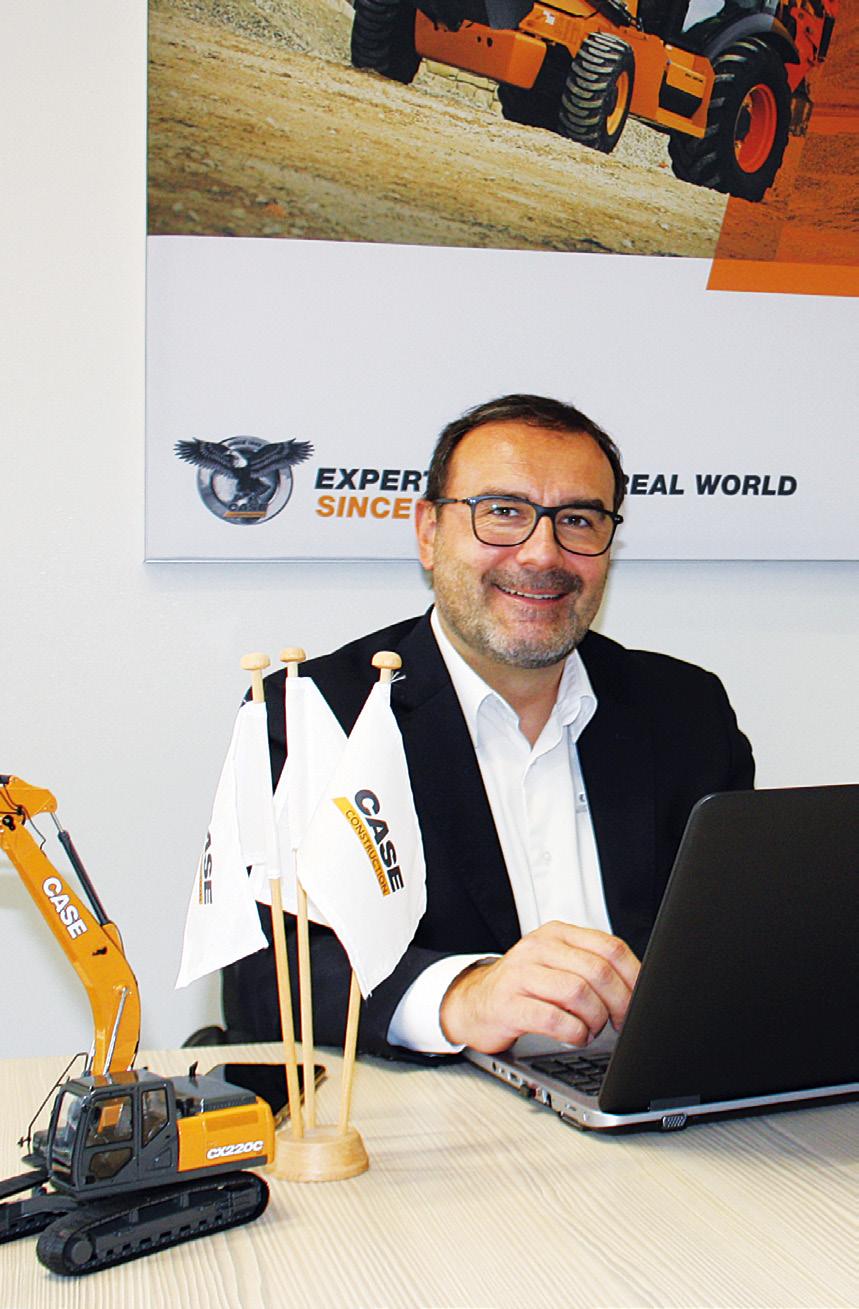
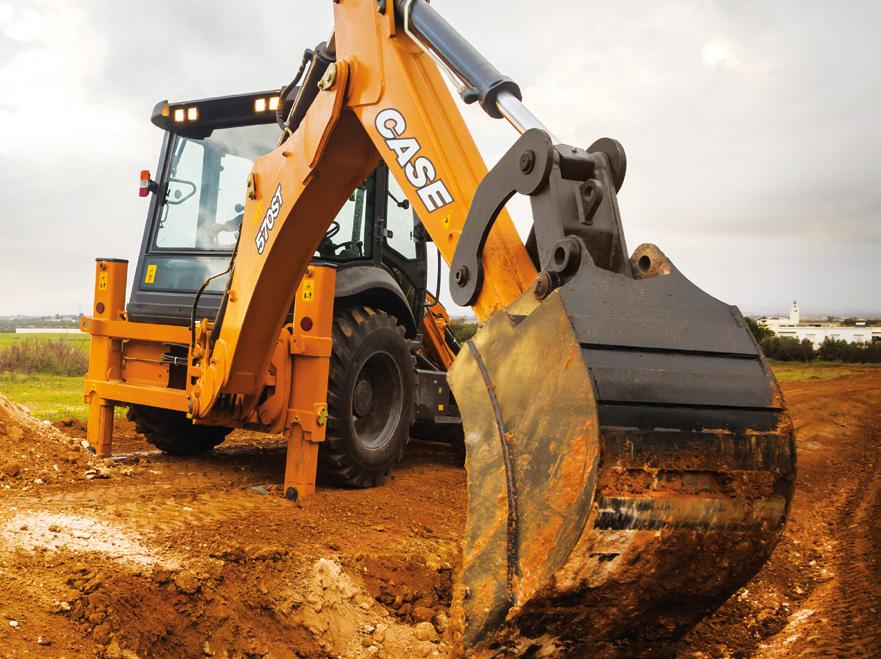

Please comment on Case’s global manufacturing footprint and how you build your machines sold in this market in various parts of the world. How does this help Case and its customers in our region? Which are the countries that the Case products sold in our region are sourced from?
Case is part of CNH Industrial, a global leader in the capital equipment segment. Our manufacturing facilities for machines and components are scattered across four continents - North and South America,
As the new commercial director for the Middle East during the Covid-19 pandemic, Dragan Krznaric believes his task is to focus on what is in Case‘s control and what it does best. Europe and Asia. We have been gradually increasing the sourcing of our product offering from the East, from countries with similar market conditions and customer requirements as the Middle East. Our products sold in this region come from the US, Italy, Japan and Brazil, with India growing fast and becoming one of our main manufacturing hubs.
Please give us an overview of the entire Case range of equipment that is available for sale in the Middle East region. What are some of the special features of the range in terms of the kinds of machinery you sell and some technical features and innovations to customise the products for the Middle East market and conditions?
Case is a full-range manufacturer, covering both compact and heavy lines of equipment, with our product portfolio consisting of skid-steer loaders, backhoe loaders, telehandlers, mini excavators and compact wheeled loaders to wheeled loaders, excavators, dozers and graders.
All products that we bring to the Middle East follow the same mantra of productivity and durability of design and manufacture, as well as ease of operation and maintenance.
Backed by the strong support of our distributors all around the Middle East and Case’s long local presence in the region, this has proven to be a pattern that delivers results for us.

How is Case performing in the Middle East market? What has been the impact of Covid-19 on the company, how have you responded to it, and how do you view the time ahead?
We entered 2020 with a history of good performances in the previous years, and this trend also continued for us at the beginning of this year.
The Covid-19 pandemic has affected us in a manner similar to how it has affected others in the sector, with sudden adverse impacts on the supply-chain and production, casting us all into unchartered territory.
But with the pandemic being outside anyone’s control, we decided early on to focus on what we could control and influence. Apart from the safety and health of our employees, partners and customers, which was paramount, we have quickly strengthened focus and adjusted our working patterns to providing support for our machines in the field, enabling users to adopt a flexible approach to fast-changing conditions on the ground. As important element of this approach, all our parts depots have remained open throughout lockdowns.
Flexibility will be key to moving ahead for the foreseeable future, as we are in a situation that most us have never experienced before - and it looks likely that it will continue for some time to come. One example to this concept of flexibility is using multiple locations for our parts sourcing, to shorten lead-times and improve availability, on top of coming around any unforeseen obstacles caused by lockdowns or supply-chain constraints.
Another important aspect we have concentrated on, especially after the Covid-19 pandemic started, is a drive to expand telematics coverage to support remote monitoring, and diagnostics of equipment in the field. One of the main aims behind this is to improve health and safety by supporting social distancing and reducing exposure. Of course, wider and more efficient use of telematics is also driving efficiencies through better planning and control, resulting in better overall machine performance and maintenance, hand in hand with improving safety for personnel from the customers’, dealers’ and Case’s own side on the job-site and beyond. Case already had the technology available even before the pandemic, but now there is impetus for faster adoption in the market and we are constantly refining it to serve our customers better.
What plans, aims and objectives do you have for Case in the region going ahead?
Case’s philosophy is to constrantly refine its products, technology and services with which it helps its customers become more efficient and profitable in their businesses.
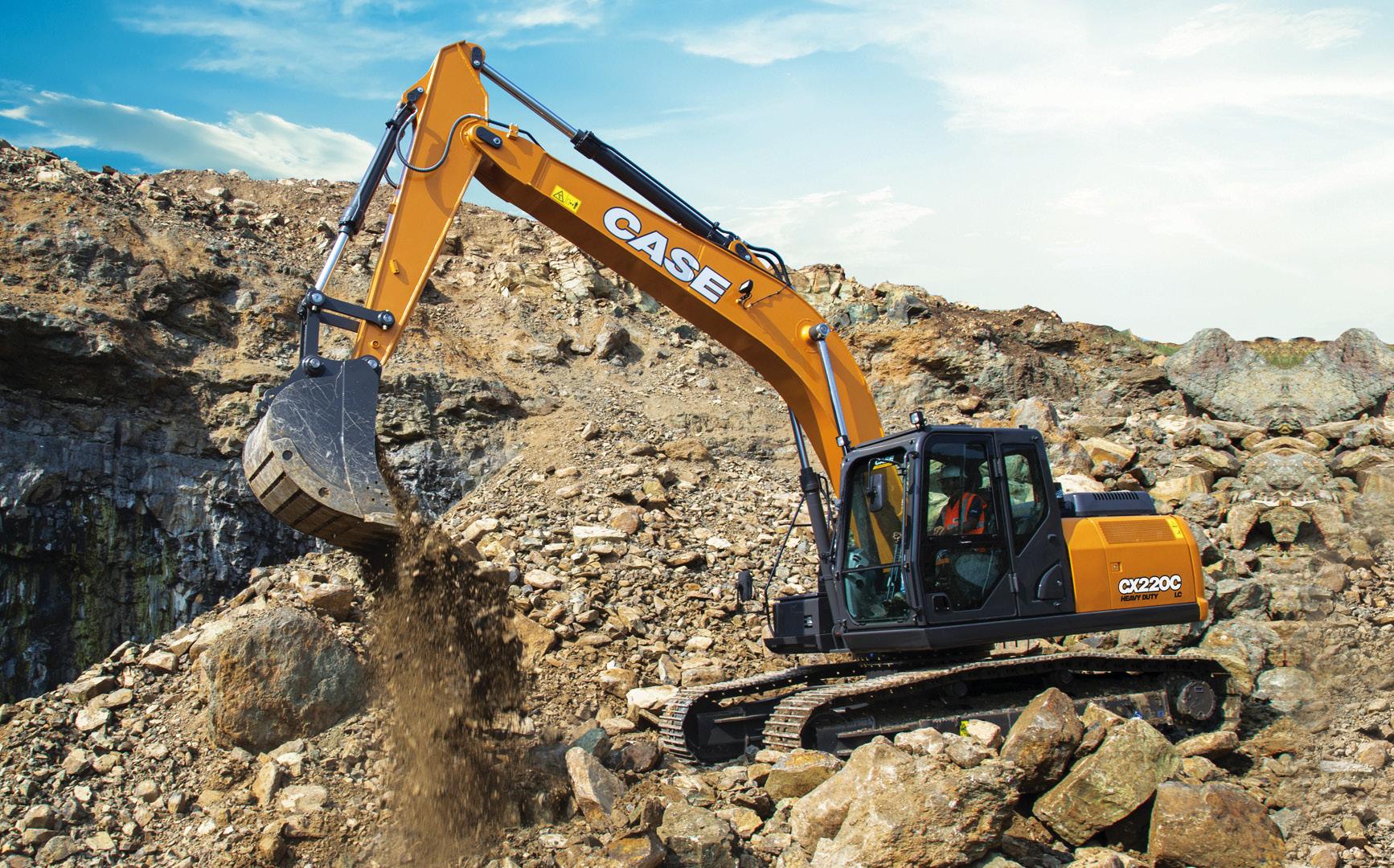
Case has built up a solid base in the Middle East over the many years of its operation in the region. Going forward, we would like to build on this and further strengthen the brand’s position in the region. This would include providing existing and new customers of Case the machines that match their requirements, delivering working tools crafted to their needs, that support them in executing their tasks in the best possible way. The bottom line for us is to constantly refine our products, technology and services that enable our customers to be more efficient, safer and more profitable in their businesses.
As their business grows ever more complex and competitive, we’re here to provide customers with versatile, productive machines and reliable support so that they spend their time on what matters most— running their business. To us, Experts for the Real World is more than a slogan—it’s our rallying cry, which is why customers count on us.
CASE 570T & ST
A WINNER FOR CASE

As Dragan Krznaric takes charge of the Middle
East and Africa region for Case, the company is riding on the success of its 570T and ST backhoe loaders, which have made their mark in a segment that is very important in the Middle East region. According to Krznaric, the machine plays an “effective and main role” on construction sites, especially road projects, due to its productivity and durability, while still coming in at a price point that makes it attractive for fleet owners. It also boasts a very practical in-cab working environment for the operator, with the capacity to accommodate helpers or extra personnel.
“Customers looking for a simple, reliable and cost-effective tool will find that this machine matches their needs to the maximum,” he says, describing the models that are manufactured by Case in India at its plant in the city of Pithampur.
“We spotted a need in this market for a machine answering to a particular description. The feedback from our customers was that they wanted what was not really a budget machine but one that was more competitively priced, was robust, easy to use and productive – and was comparable in quality to made-in-Europe machines.
It’s built in a factory that has won a silver rating in the WCM (World Class Manufacturing) ratings, the same as Case’s plant in Italy. It’s a factory that any manufacturer would be proud to show off, says Krznaric and that’s exactly what Case did when it took a team of customers from the Middle East and Africa there on a visit.
“They came away really impressed by the plant, the manufacturing process and the attention to quality and detail. The Middle East really likes the 570t and ST, and the sales figures speak for that more eloquently than any testimonial could.”
